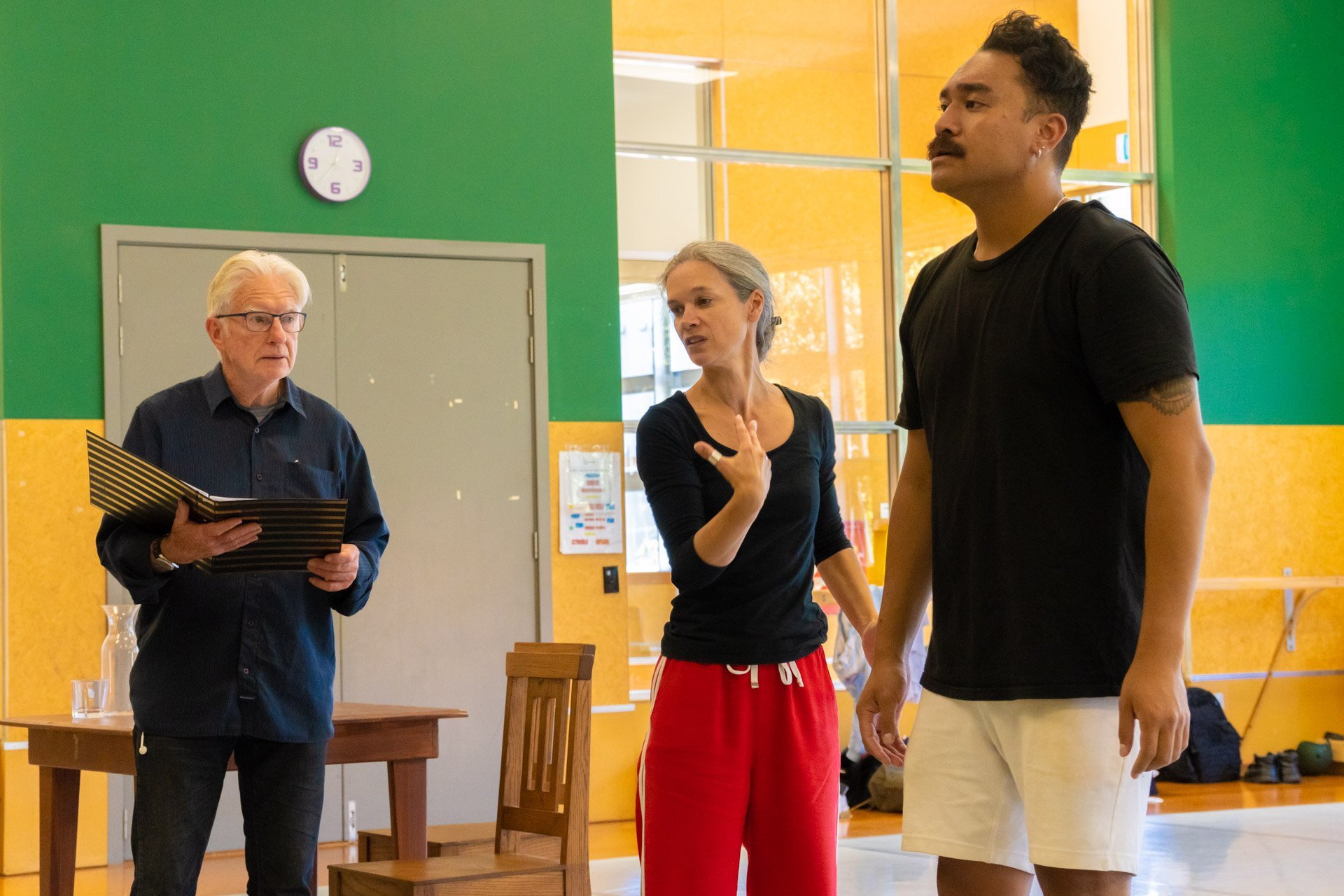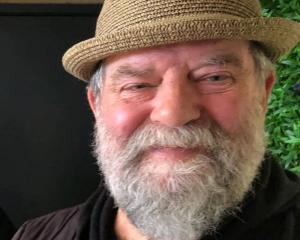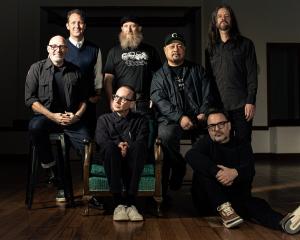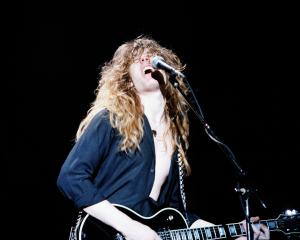
Symphony Orchestra’s production of Igor Stravinsky’s The Soldier’s Tale was too good an opportunity to miss, he tells Rebecca Fox.
Igor Stravinsky’s The Soldier’s Tale has been performed and recorded many times, but it is what is put around the music that makes the difference, Dunedin actor Peter Hayden says.
The likes of Jean Cocteau, Peter Ustinov, John Gielgud, Ian McKellen, Sting, Jeremy Irons and Gerard Depardieu have performed in speaking roles. Pink Floyd’s Roger Waters recorded a version in 2018.
In 2001, the New Zealand Symphony Orchestra (NZSO) performed the work with Taika Waititi as the soldier, Jemaine Clement as the Devil and Rima Te Wiata as the narrator.
In this production, directed by Sara Brodie, Hayden takes the role of narrator and is joined by Sepelini Mua’au as the soldier, Sophie Hambleton (Westside) as the Devil, two dancers from the Royal New Zealand Ballet (RNZB) and the NZSO ensemble.
The work is based on an old Russian folk tale in which a soldier deserts his duties and makes a deal with the Devil.
Stravinsky wrote the piece during the deadly 1918 influenza pandemic, designing it to be easily toured and performed in even small locations. He included speech, mime and dance with music written for a distinctive assortment of instruments and inspired by popular music of the period, including tango and ragtime.
Hayden, who worked for NHNZ for 35 years before deciding to concentrate more on his acting, says as narrator he also plays the role of the soldier’s conscience, the angel on his shoulder .
"It’s a story about relationships and it’s about greed, really, at the heart of it. Love is also at the heart of it."
The main attraction for doing this project for him was the chance to work with Brodie again. They had worked together twice before on the Auckland Theatre Company’s The Curious Incident of the Dog in the Night-time about autism and a production of Maurice Gee’s Under the Mountain written by Pip Hall.
"I knew she’d come up with something really creative. She’s such a busy woman."
An early rehearsal with the actors and dancers was "extraordinary". The soldier and Devil each have an alter ego played by a dancer.
"It works amazingly well."
For Brodie, the production had a twofold attraction. It enabled her to work with the NZSO on a production which had been on her "hit list" for some time.
"It’s a good Faustian tale. It’s a universal tale and Stravinsky’s music is fantastic."
Many years ago, she had thought about how she would stage a production of it, so this was a perfect opportunity to make those visions come to life and also work with NZSO principal conductor in residence Hamish McKeich.
"We’ve tried to work together on many occasions but it never quite happened."

“The music is often performed without the stage acting and dancing, as the music is so good it easily stands up on its own. Personally, it was the very first piece of music I conducted in concert, many years ago.
“To now have the staging as well, with top director Sara Brodie and Shaun James Kelly from the RNZB, is a dream come true.”
Brodie, an arts laureate who is known for her work spanning multiple disciplines including theatre, dance, opera and interdisciplinary productions, loves the challenge of bringing together people from different skill sets.
In this production there are the musicians, actors and dancers.
"There are a lot of components and I’ve added puppetry into the mix as well. In order to embody the Devil. The Devil turns up in umpteen different guises and we decided to use a puppet Devil [as] a great way to do that. It’s a bit of a shape-shifter."
Many are involved in the Devil’s portrayal — the puppet is controlled by two people and a dancer inhabits the Devil as well.
"It enables us to shape-shift very easily. There is something otherworldly and highly theatrical which gives it this life and scale."
Working with RNZB choreographer in residence Shaun James Kelly has been a great meeting of minds, she says.
"I’m not as specialised as he is with classical ballet, but we see things the same way. We often open our mouths to say the same thing at the same time on the rehearsal floor."
Kelly says he has taken inspiration from the music
"I like an audience to feel the music and movement moving together and I had such fun pairing my choreographic style with this wonderful Stravinsky score, played so powerfully by the NZSO."
Brodie says with all the different skill sets involved, each contributes and learns a bit of the others’ language.
Actors are moving a lot more in a highly choreographed way at times, especially in the role of the soldier, and the male dancer who plays the soldier’s alter ego, his shadow, is acting "his heart out".
"It’s delightful to see everyone working with and encouraging each other."
Brodie loves working behind the scenes on productions as she gets to collaborate with so many creative people.
"Brainstorming with a good team of creatives is fantastic fun."
Kelly, McKeich and she met to thrash out ideas early in the piece, which was a great experience, Brodie says.
"We were able to feed off each other."
Working with the lighting designers is also fantastic as it helps to create the atmosphere of any piece.
"It has such an immediate effect on the audience."
As well as working on The Soldier’s Tale, Brodie is directing Suor Angelica & Elegies for Toi Toi Opera’s inaugural production in Christchurch and after The Soldier’s Tale, she starts on Wellington Opera’s inaugural production of Mozart’s Don Giovanni.
"A lot of my work is in the planning. Now I’ve done all the staging with Suor Angelica I’ve been spending the last few days on Don Giovanni and we’ve just done a run through of The Soldier’s Tale."
While she loves theatre in all its forms, she is committed to fighting the stigma opera faces — that it is only a rich person’s pastime — to increase access for everyone.
"There is nothing like the power of the human voice telling a story the way opera does. It’s very personal singing and there are very few places to hide as a singer."
To see:
The Soldier’s Tale in association with the Royal New Zealand Ballet
Wanaka: March 4
Dunedin: March 5
Oamaru: March 6













